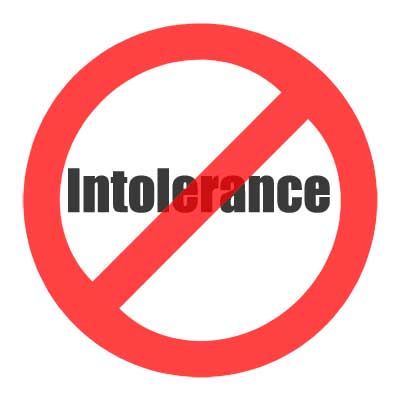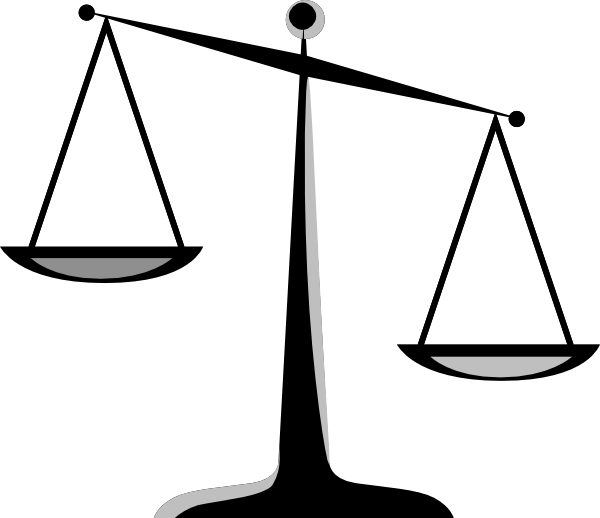Cultural Exile
 As for our slide into cultural exile, among other reasons, perhaps we should consider that a great deal of it is self-induced. The church's downward spiral in doctrinal (biblical) and moral integrity seems to be one of the main culprits. If we believe in the sovereignty of God then there is certainly good reason He has placed us in the current situation we find ourselves in. So we should consider not looking so much "out there" as the cause of our problems but rather begin to look in the mirror. Our restoration from exile may not come from putting out all the socio-political fires around us but rather come on the condition of our corporate repentance (Lev 26:40-42; Deut 30:1-10; Jer 29:13). Perhaps not a popular sentiment but worth considering. Then again, God shaking up the church may not ultimately be such a bad thing. He has often taken a bad historical situation and made it into a good one. The gospel many times has flourished even in the most unlikely social and political conditions.
As for our slide into cultural exile, among other reasons, perhaps we should consider that a great deal of it is self-induced. The church's downward spiral in doctrinal (biblical) and moral integrity seems to be one of the main culprits. If we believe in the sovereignty of God then there is certainly good reason He has placed us in the current situation we find ourselves in. So we should consider not looking so much "out there" as the cause of our problems but rather begin to look in the mirror. Our restoration from exile may not come from putting out all the socio-political fires around us but rather come on the condition of our corporate repentance (Lev 26:40-42; Deut 30:1-10; Jer 29:13). Perhaps not a popular sentiment but worth considering. Then again, God shaking up the church may not ultimately be such a bad thing. He has often taken a bad historical situation and made it into a good one. The gospel many times has flourished even in the most unlikely social and political conditions.
Related Essay
What Exile Means

 The excommunication of an individual in your local church should never be done easily or lightly, but sometimes it needs to be done for the love and purity of the church. Done rightly and carefully it exposes false teaching and unrepentant immorality and may have the blessed function of being the means of repentance, reconciliation and the bringing of brothers back into the fold.
The excommunication of an individual in your local church should never be done easily or lightly, but sometimes it needs to be done for the love and purity of the church. Done rightly and carefully it exposes false teaching and unrepentant immorality and may have the blessed function of being the means of repentance, reconciliation and the bringing of brothers back into the fold. Almost a decade ago I was involved in a titanic spiritual battle between two opposing theological views. I could feel the once rock solid doctrines of free will slipping through my fingers like fine sand. I begged and beseeched the Lord to deliver me from the relentless reasonings and scriptural bombshells ripping the house I had built on the shifting dunes of man-centered doctrines. My pride and self-respect were on the line.
Almost a decade ago I was involved in a titanic spiritual battle between two opposing theological views. I could feel the once rock solid doctrines of free will slipping through my fingers like fine sand. I begged and beseeched the Lord to deliver me from the relentless reasonings and scriptural bombshells ripping the house I had built on the shifting dunes of man-centered doctrines. My pride and self-respect were on the line. Response: I saw this statement yesterday in the comments of some news about a Christian... and no doubt we all increasingly see these kind of statements frequently posted around the Internet. Infact, these are the kind of statements where I have seen people receive hundreds of "likes" on progressive-leaning news websites like Huffington Post, especially when they are talking about the views of theologically conservative Christians. It really appears that the persons who make such declarations, and their followers, fail to see the sheer irony in these statements. For to "eliminate" a view is somehow to believe that certain views are so unworthy of public discourse that such person(s) should not have the freedom of conscience to hold such views or speak about them publicly to anyone else. Now, if I understand tolerance correctly, all Christians I know of firmly believe in freedom of conscience. That is, they will disagree wholeheartedly with a false view of the world, but they allow for others the freedom of conscience to hold such bad ideas. Faith is a supernatural work of God in the heart and not something that can be coerced by the sword. But the new kind of so-called "tolerance" appears to embrace an a kind of "enforced tolerance" ethic which is obviously so muddled in self-contradiction that it should not even bear mentioning. But the new believers of such views seem to sit comfortably within their self-contradiction. It does not seem to bother them that their position defies all reason or logic, even when plainly pointed out.
Response: I saw this statement yesterday in the comments of some news about a Christian... and no doubt we all increasingly see these kind of statements frequently posted around the Internet. Infact, these are the kind of statements where I have seen people receive hundreds of "likes" on progressive-leaning news websites like Huffington Post, especially when they are talking about the views of theologically conservative Christians. It really appears that the persons who make such declarations, and their followers, fail to see the sheer irony in these statements. For to "eliminate" a view is somehow to believe that certain views are so unworthy of public discourse that such person(s) should not have the freedom of conscience to hold such views or speak about them publicly to anyone else. Now, if I understand tolerance correctly, all Christians I know of firmly believe in freedom of conscience. That is, they will disagree wholeheartedly with a false view of the world, but they allow for others the freedom of conscience to hold such bad ideas. Faith is a supernatural work of God in the heart and not something that can be coerced by the sword. But the new kind of so-called "tolerance" appears to embrace an a kind of "enforced tolerance" ethic which is obviously so muddled in self-contradiction that it should not even bear mentioning. But the new believers of such views seem to sit comfortably within their self-contradiction. It does not seem to bother them that their position defies all reason or logic, even when plainly pointed out. The Christian Biographies for Young Readers series introduces children to key figures from church history. Author Simonetta Carr and illustrator Matt Abraxas offer a compelling and beautiful historical account of the life of each Christian figure profiled in the series. To date, the series includes volumes on
The Christian Biographies for Young Readers series introduces children to key figures from church history. Author Simonetta Carr and illustrator Matt Abraxas offer a compelling and beautiful historical account of the life of each Christian figure profiled in the series. To date, the series includes volumes on  Today I’m listing my Top 10 Books for Elders, with the recommendation that elders read at least one of these books on eldership every year. Why not do it together with fellow-elders? Obviously there are various church polity models represented here, but I hope you’ll find much to learn about eldership from each of the various traditions.
Today I’m listing my Top 10 Books for Elders, with the recommendation that elders read at least one of these books on eldership every year. Why not do it together with fellow-elders? Obviously there are various church polity models represented here, but I hope you’ll find much to learn about eldership from each of the various traditions. Visitor: "Your website is an exercise in biased and prejudicial thinking. Your stated mission and posted writings show a consistent pattern: label something, then throw it into either the "good theology" bin or the "bad theology" bin. I suppose this method and habit of thought provides you and many of your readers with a sense of security, but to me it is not the way of love. It is the way of division, judgment, and prejudicial rejection---the very things Jesus spoke out and acted against. Your view of the Bible is somewhat ironically not supported by the text itself, and to me amounts to Bibliolatry.It is sad to me that so many people (you, your contributors, and uncritical readership) of obvious intelligence have chosen to think in such rigid categories. I only hope that some will face their anxiety squarely and courageously, rather than hardening their minds and hearts in the cognitionof unlove."
Visitor: "Your website is an exercise in biased and prejudicial thinking. Your stated mission and posted writings show a consistent pattern: label something, then throw it into either the "good theology" bin or the "bad theology" bin. I suppose this method and habit of thought provides you and many of your readers with a sense of security, but to me it is not the way of love. It is the way of division, judgment, and prejudicial rejection---the very things Jesus spoke out and acted against. Your view of the Bible is somewhat ironically not supported by the text itself, and to me amounts to Bibliolatry.It is sad to me that so many people (you, your contributors, and uncritical readership) of obvious intelligence have chosen to think in such rigid categories. I only hope that some will face their anxiety squarely and courageously, rather than hardening their minds and hearts in the cognitionof unlove."